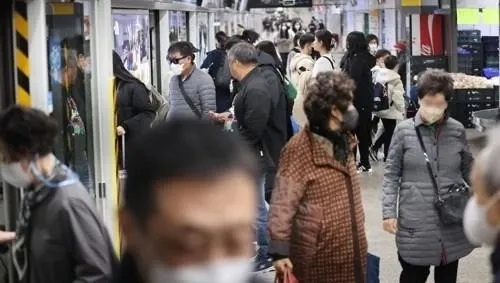Are Covid-19 Cases Set to Surge in South Korea This Month?

Synopsis
Key Takeaways
- Covid-19 cases in South Korea are expected to rise this month.
- Health authorities are urging vaccinations for vulnerable groups.
- Last year saw significant hospitalizations during summer.
- New variants are causing surges in other countries.
- The situation in India mirrors that of South Korea.
Seoul, June 10 (NationPress) Health authorities have indicated that Covid-19 infections in South Korea are projected to gradually rise as we approach the summer vacation period. They are strongly advising older adults and at-risk populations to get vaccinated. The Korea Disease Control and Prevention Agency (KDCA) predicts that this year will follow the trend of past summers, which have seen a consistent uptick in cases.
Last year, hospitalizations due to Covid-19 peaked at 1,444 in the third week of August, an increase from 1,362 the previous week and just 864 at the beginning of the month.
Despite a stable count of around 100 Covid-19 patients over the last month, countries like Thailand and Taiwan have reported significant surges in cases, largely driven by emerging variants.
To combat this, South Korea is providing complimentary Covid-19 vaccinations to individuals aged 65 and above, as well as vulnerable and high-risk groups, by the end of this month.
As of Monday, approximately 47.5% of individuals aged 65 and older have been vaccinated, according to the KDCA, as reported by the Yonhap news agency.
In a related note, India is also witnessing a rise in Covid-19 cases. The Ministry of Health and Family Welfare reports that 783 patients have recovered, been discharged, or relocated across the nation as of Tuesday morning.
Currently, India's active Covid-19 cases stand at 6,815, marking an increase of 324 cases. Over the last 24 hours, three new fatalities linked to Covid-19 were recorded, one each in Delhi, Kerala, and Jharkhand.
This resurgence in India has been linked to fresh Omicron sub-variants, such as JN.1, NB.1.8.1, LF.7, and XFC. These variants are characterized by enhanced transmissibility yet typically result in mild symptoms. The World Health Organization has classified these as “Variants Under Monitoring,” signaling that while they are not currently alarming, they require careful observation. Furthermore, while SARS-CoV-2, the virus behind Covid-19, has not disappeared, it has entered a cyclical pattern of illnesses, resembling seasonal flu, and no longer presents an unpredictable crisis.










